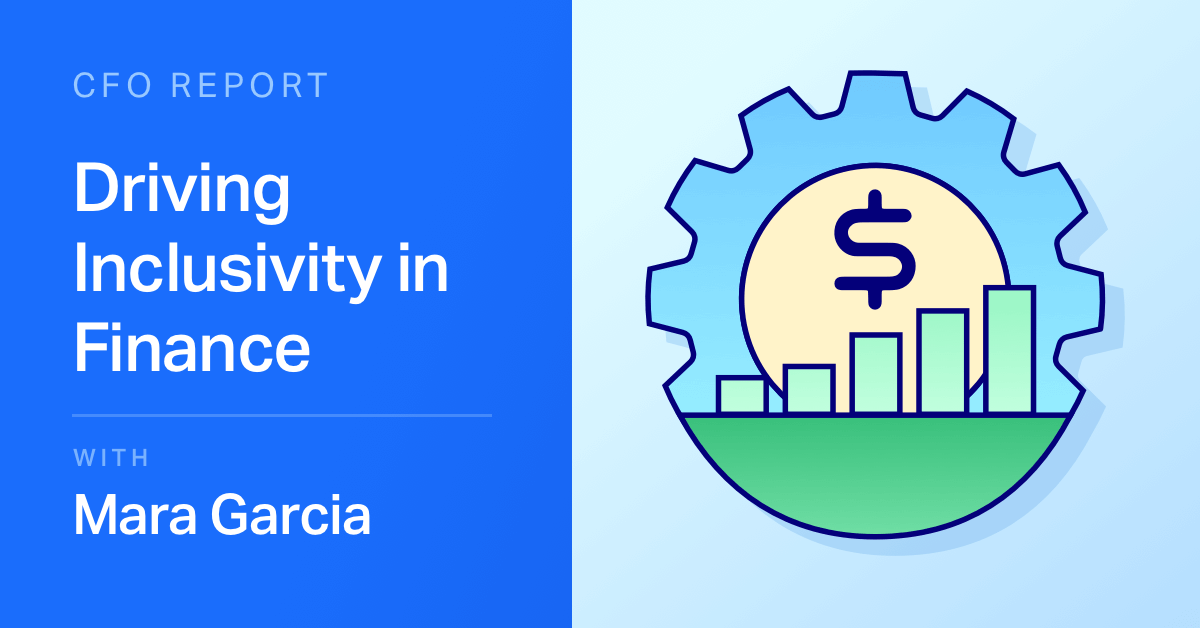C-suite executives look to finance and accounting teams for guidance on business decisions that impact the enterprise. However, for professionals looking to ascend the ranks in finance, standing firm in their ability and voicing their expert opinion can be intimidating. Finance leaders can better support their teams' long-term professional development by ensuring they receive exposure to problem-solving and contribute to high-impact projects. Having transformative and impactful projects under their belt can be the catalyst for a successful career.
We recently connected with Melissa Miller, CFO of JUNKLESS Foods, to discuss leadership styles, the power of using your voice, and the importance of betting on yourself. Here is what we learned:
Can you tell us about your leadership journey?
I started my career in the insurance industry after college. I was in a management training program where I saw various facets of accounting and finance. I experienced different management styles and was able to develop my own. My role evolved in multiple ways in that industry: accounting, financial reporting, management, and even treasury. It was a great tool in helping me identify what I enjoyed doing. I attended Notre Dame to obtain my MBA, and upon graduation, I was able to look at other career paths. I landed at the Kellogg Company, working in various finance capacities for 21 years.
During my time at the Kellogg Company, I handled several leadership opportunities and built on every lesson to expand my depth and breadth of knowledge. In addition, I engaged and partnered with individuals across the organization, including finance, innovation, sales, manufacturing, and supply chain teams.
About two and a half years ago, I left the Kellogg Company. I joined a small startup called JUNKLESS Foods, where I make an impact by further leveraging my accounting and finance background within a small business.
Was it a challenge to leap from a large enterprise to a startup?
It was risky; I did not anticipate working for a small startup. I was considering working with other large corporations after leaving Kellogg, but I connected with two friends who had started a small business during my search. I said to them, "I know your team is still really small, but I have time if you need another set of hands to help out or if there is anything that I can do to advance the business." They took me up on my offer, and I've been with them for over two years as the CFO of JUNKLESS Foods.
When you transition like this, you grow to appreciate your experiences because with that comes knowledge. Through my professional experience, I can support an emerging company. Yet, simultaneously there are frustrations because you don't have access to the resources available at a large corporation that would help accelerate the growth like systems, infrastructure, or even additional team members.
Every day is different, but it's gratifying.
What would you say is your greatest professional accomplishment?
As a leader, there were times when I was called upon to help the business navigate through challenging circumstances. For example, I was in a meeting with 20 of my colleagues, including the CEO and CFO. I had to present and defend options that influenced how we would manage critical business decisions.
It was then that it felt as though the room went from 20 people to just three of us having that conversation. I presented financial information to allow them to make the most strategic decisions for the business. I walked away feeling confident that I could act as a financial advisor to the executive team and stand toe-to-toe in a high-pressure environment. I had the information they were seeking, and I am grateful for that opportunity because some individuals don't often get that exposure.
Do you think you encountered any challenges or self-doubt as a woman in a male-dominated environment?
Within my path, I was fortunate to work in a culture that, at the time, was further expanding opportunities for women at higher levels within the organization. It was a systematic initiative to make it happen, which allowed me to be there. At the same time, I had the experience and business knowledge needed to share what was happening and how we could help the broader group.
How would you describe your leadership style?
Some colleagues challenged my leadership style at various times. Being a woman, they questioned whether I was too nice of a person. Although that occurred 15 years into my career, it was an attempt to change my leadership style rather than accepting the reality that different leadership concepts exist and can work when applied in the right environment.
I try to keep my team grounded and calm, especially during disruption or challenges. I take an organized approach to evaluating information and digesting it instead of being reactionary. At the same time, I found it useful to act as a coach for my team. With my experience, I can forecast potential pitfalls and help my team identify and avoid surprises whenever possible. Of course, there will always be unexpected change, but I ensure we anticipate what is to come and stay a step ahead of it.
What would you tell women in finance who aspire to be in leadership, and what advice would you give on closing the gender gap in finance?
- Increase diversity in the boardroom. Boards need to be more inclusive for women and people of color. A diverse panel will be more likely to select a CEO with a diverse mindset, which will help further the advancement of women in the corporate setting.
- Prioritize closing the price gap. As women progress in their careers, they have to make the difficult decision of raising children. Many women must leave the workforce because of the cost of childcare, and when their partner earns significantly more than them, there is often a joint decision for the female to be the one who stays home with the children. Having to leave the workforce limits their ability to provide for their family and alters the trajectory of their career growth.
- For aspiring female professionals, be true to yourself and be positive. If you believe you can do it, do it. Don't hesitate!
- Leverage your relationships and network. Connect with others who can support and satisfy your personal and professional objectives. Have the courage to seek a better alternative for yourself, and don't be afraid to go after a new opportunity if it offers the advancement you want.






